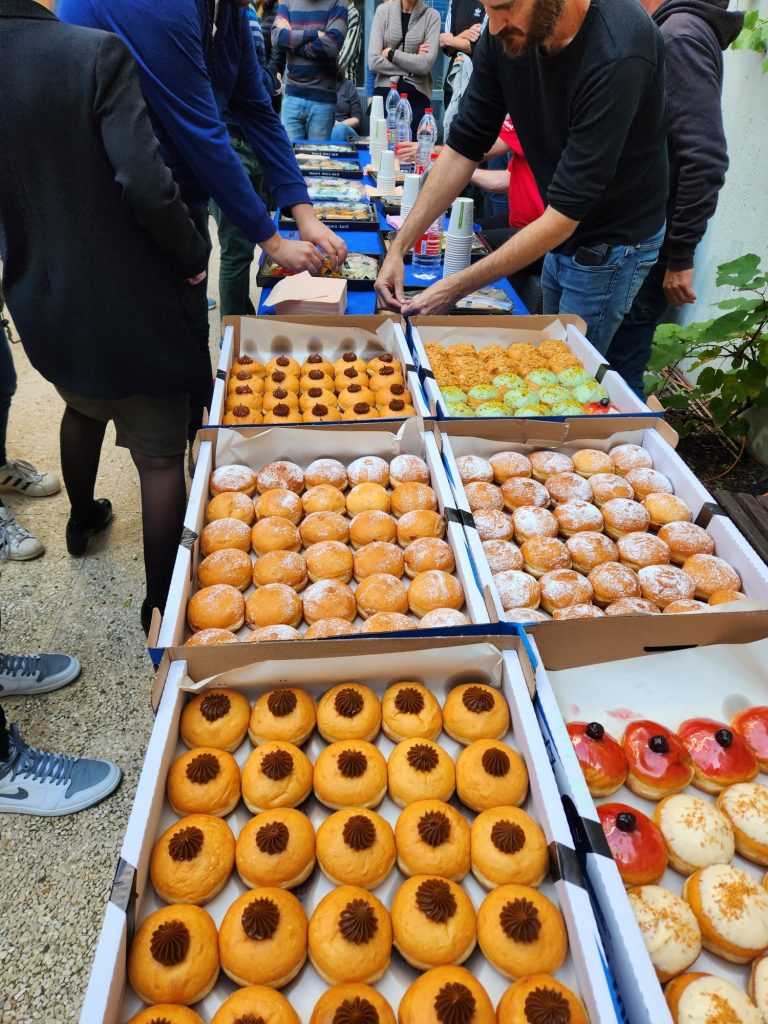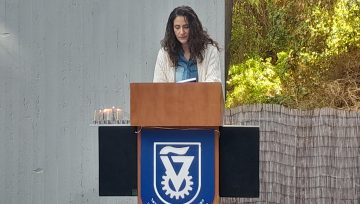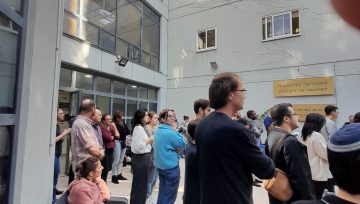Two days ago, we lit the fifth candle of Hanukkah together at the faculty. On days like these, we’re reminded how a little light dispels much darkness.
In addition, we had the opportunity to honor doctoral student Ariel Hazan from Prof. Oded Beja’s lab for winning the ‘Article of the Year’ award for 2023.
Prof. Beja’s research team studies rhodopsins, unique proteins that convert sunlight into biochemical energy in many aquatic microbes.
The cell utilizes this energy to support its metabolic needs, making the rhodopsin vital for microbial survival.
This work showed that many microbes can bind a carotenoid molecule to the rhodopsin protein. The carotenoid molecule functions as an antenna that significantly increases the amount of light absorbed by the rhodopsin.
We found that the carotenoid molecule can increase protein activity by more than 30%, therefore making this carotenoid molecule a key element in the microbe’s ability to utilize sunlight energy.
Our findings suggest that these antennas may substantially affect rhodopsin-containing bacteria in the world’s lakes, seas, and oceans.











